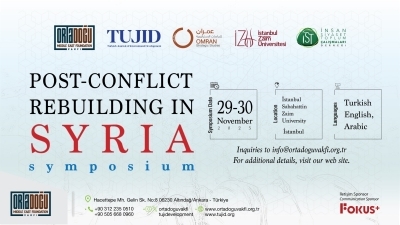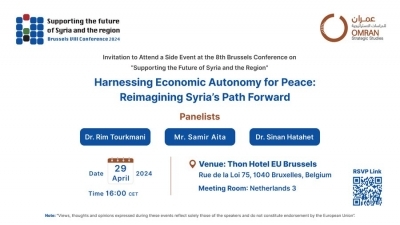Reports
The Syrian Military Establishment in 2019: Sectarianism, Militias and Foreign Investment
Introduction
Questions about the fate of Syria’s security and defense sectors continue to be some of the most important questions facing the country today. These questions have only grown in importance since the revolution, both because reforming these sectors was one of the main demands of protestors, and because Syria’s security and defense institutions have undergone profound transformations in their structure and function. Most of these questions remain unanswered, as security agencies consider research in this field as acts “against security and defense.” At the same time, the shortcomings in Syria’s security and defense sectors that must be addressed are both numerous and old, and recent policies and practices have served to exacerbate these issues, transforming them into increasingly intractable dilemmas.
The current reality of the Syrian military establishment raises questions about the very nature of its existence and fate, especially given the changes in its social composition, power centers, and key actors. Given these substantial shifts, there is an urgent need for research to redefine Syria’s military establishment and to understand how the changes in its structure will impact the restructuring process that is already underway. So far, this process is being driven by several conflicting agendas, but is entirely lacking any consideration of the crucial national dimension.
The role of the army and its impact on local interactions and shifts and on the dynamics of democratic transformation remain central questions facing the process of restructuring the Syrian military establishment. The structural and functional shortcoming and the identity distortions that have taken occurred in the military establishment have led it to constantly intervene in Syrian society and politics in a manner that both serves and fuels the philosophy of the ruling class. As a result of the ideological, organizational, and functional distortion of the security and defense establishments, these institutions have become completely alienated from Syrian society. They lack any sense of neutrality and are instead forces that are politically aligned with the regime.
The main challenges to restructuring Syria’s military establishment include the implementation of the technical aspects of complex demobilization, disarmament, and reintegration (DDR) and security sector reform (SSR) programs, but also the specific features of the Syrian context, such as the partisan nature of the army and its doctrine, and the complete absence of a legal framework for civil-military relations.
In 2018, the Omran Center for Strategic Studies launched a research project on the transformations taking place in the Syrian military establishment and the challenges of change and reform. Omran has continued this course of research into 2019 and is pleased to present its second volume of research in this area: “The Syrian Military Establishment in 2019: Sectarianism, Militias and Foreign Investment.” This collection of papers focuses on the current reality of Syria’s military establishment in 2019 and grapples with questions related to its organizational structure and the new networks forming within that structure. The subjects that are covered in the papers in this volume are as follows:
- Sectarianism in the Syrian Army: A study of the social composition of the military:
- Military Groups and Networks within the Syrian Army: Multiple Loyalties and Militia Mentality (paper).
- The Role and Fate of Palestinian Forces and Militias Loyal to the Syrian Regime (paper).
- New Military Corps in the Syrian Army (report).
- Testing the Regime’s Capacity for Restructuring and Reintegration (paper).
- Non-Technical Challenges of Restructuring Syria’s Military (paper).
- Military Judicial System in Syria from 1950-2019 (report).
The research findings have been based on five focus group discussions organized by the Omran Center with defected officers of various specializations in a number of cities in southern Turkey to discuss two main themes: 1) What remains of the Syrian army? and, 2) Inducing sectarianism and its mechanisms in the army. In addition to these focus groups, Omran researchers conducted dozens of one-on-one interviews with defected officers.
For More Click here:
Arabic version: http://bit.ly/2LvSWum
English: version: http://bit.ly/2XiPeGZ



